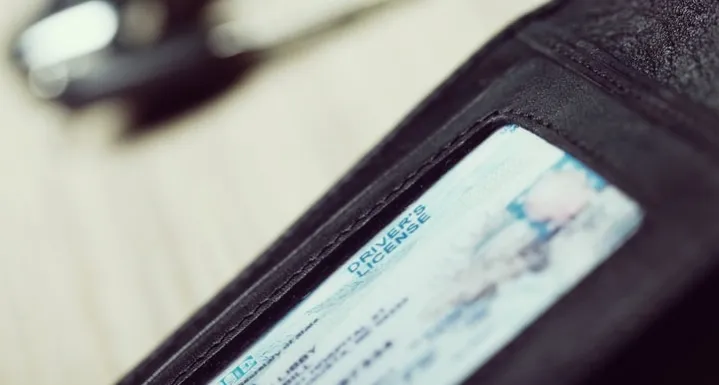 Articles
ArticlesKey Takeaways
- A hardship driver’s license in Alabama allows limited driving for those whose licenses are suspended or revoked.
- Eligible individuals must meet specific criteria, such as being released from corrections or lacking reasonable transportation.
- The license permits driving only for essential purposes, including work, education, and medical needs, but prohibits commercial driving.
- Applicants must verify eligibility, prepare documentation, and submit to the Alabama Law Enforcement Agency (ALEA) for approval.
- The cost is $36.25, valid for four years, and violations can lead to revocation of the license.
A hardship driver’s license is a restricted license that allows limited driving privileges for Alabama residents whose regular driver’s license has been suspended or revoked.
This special license was established by the Alabama Law Enforcement Agency (ALEA) in 2019 under Rule 760-X-1-.24. It helps eligible individuals legally drive to essential destinations like work, school, and medical appointments while working toward full reinstatement.
Who Qualifies for a Hardship License in Alabama?
You may qualify if you meet one or more of these criteria:
- You were recently released from the Alabama Department of Corrections.
- You are in a community corrections or work-release program.
- Your driver’s license is suspended or revoked, and you can prove that you lack reasonable transportation.
Who Is Not Eligible?
You generally cannot qualify if you:
- Have a DUI conviction under Ala. Code § 32-5A-191.
- Are medically ineligible for a Class D driver’s license.
- Have a suspension/revocation for a serious traffic or criminal offense.
📘 Reference: Alabama Administrative Code Rule 760-X-1-.24
Where You Can Drive With a Hardship License
A hardship driver’s license allows driving only for essential purposes, including:
Employment-Related Travel
- To and from work, job training, or job interviews.
Education
- To a school, college, or child-care facility where you or a dependent are enrolled.
- To school-sanctioned events like graduations or athletic events.
Medical Needs
- To medical or mental-health facilities or pharmacies.
Legal & Civic Obligations
- To court appearances, probation meetings, or community service.
- To polling places for voting.
Religious Services & Household Needs
- To places of worship and related activities.
- To stores for groceries or essential household errands.
Restrictions You Must Follow
- You can drive only within Alabama.
- Commercial driving (CDL use) is prohibited.
- You must maintain valid auto insurance.
- Any violation of license conditions can result in immediate revocation.
How to Apply for a Hardship License in Alabama (Step-by-Step)
1. Verify Eligibility
Ensure you meet at least one qualifying category and have no disqualifying offenses.
2. Prepare Documentation
You’ll need:
- Completed ALEA Hardship License Application
- Proof of hardship or inability to obtain reasonable transportation
- Vehicle & insurance details
- List of travel destinations, routes, and times
- Supporting documents (e.g., letter from correctional or work-release program)
3. Submit to ALEA
Send your completed application:
📧 Email: hardship.license@alea.gov
📠 Fax: 334-353-9988
📬 Mail: ALEA Driver License Division – Hardship License Unit, PO Box 1471, Montgomery, AL 36102
Official info: ALEA Hardship Driver License Page
4. Wait for Approval
If ALEA approves your request, you’ll receive a letter. You must visit a local ALEA office within 60 days to get your physical hardship license.
5. Maintain Compliance
Always obey all restrictions and keep insurance active. Violations can lead to revocation or additional penalties.
Cost and Validity Period
- Cost: $36.25 (same as a Class D driver’s license)
- Validity: 4 years
- Renewal: You can reapply within 6 months of expiration if you show “good cause.”
Is a Hardship License Right for You?
Pros:
- Legal way to drive while suspended or revoked
- Helps maintain employment or education access
- Supports family and medical obligations
Cons:
- Strict travel limitations
- Alabama-only validity
- Not a substitute for full reinstatement
Recent 2025 Updates
- Updated administrative guidance clarifies eligible categories and duration.
- ALEA emphasizes full documentation for “reasonable transportation” claims.
- Cost remains the same as of 2025, but enforcement scrutiny has increased.
Get Help From an Alabama License Suspension Lawyer
Navigating the hardship license process can be confusing and document-heavy. If you need help, we recomemnd that you contact the Alabama bar attorney referral service and ask for the name of an attorney in your area that handles license suspension matters.
Frequently Asked Questions (FAQs)
1. Can I get a hardship license after a DUI in Alabama?
No. Individuals with a DUI conviction under § 32-5A-191 are ineligible.
2. Can I drive out of state with an Alabama hardship license?
No. It’s valid only within Alabama.
3. How long does it take to get approved?
Processing typically takes a few weeks, depending on documentation and case volume.
4. What happens if I violate hardship restrictions?
ALEA can immediately revoke your license, and additional penalties may apply.
